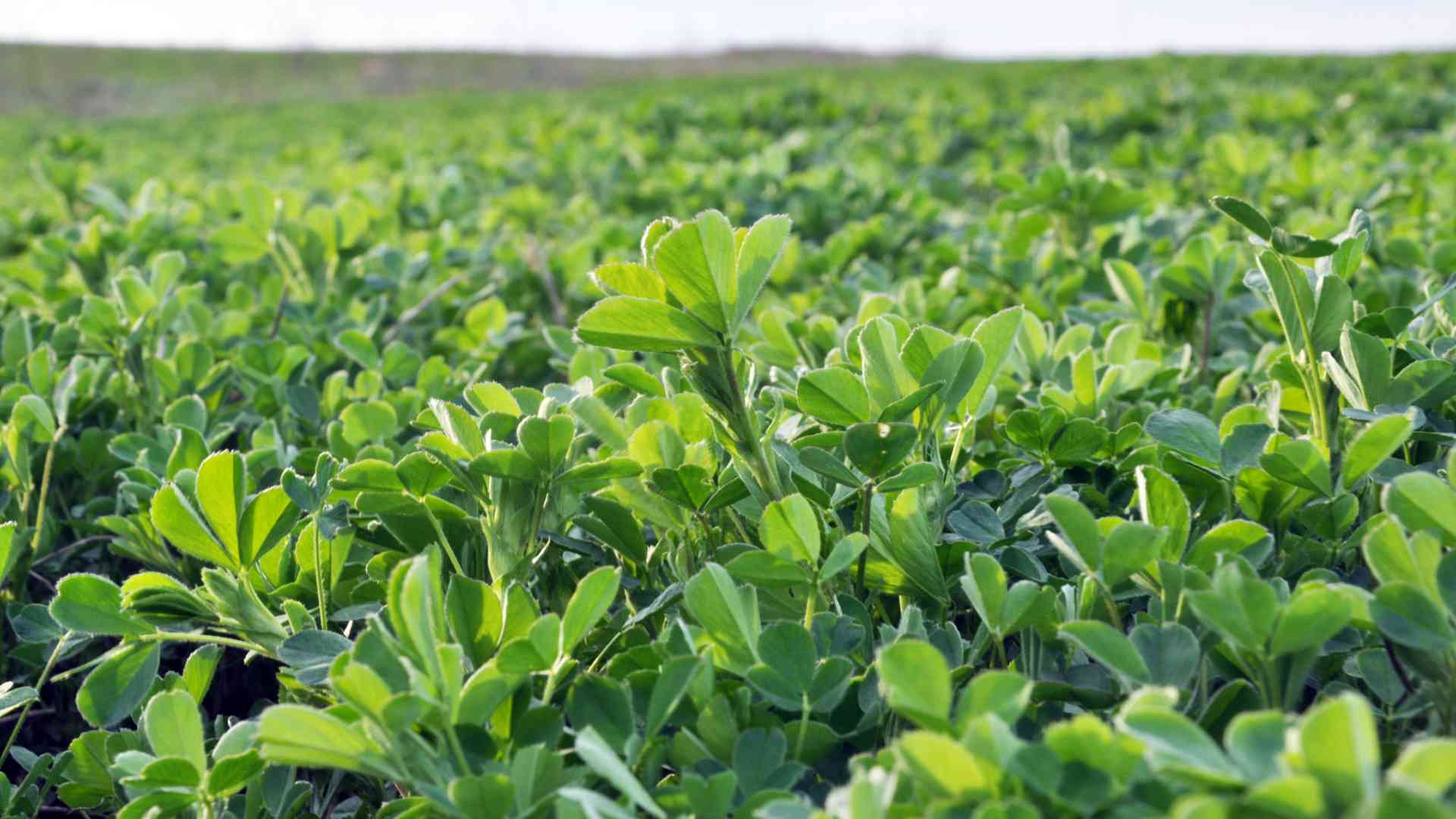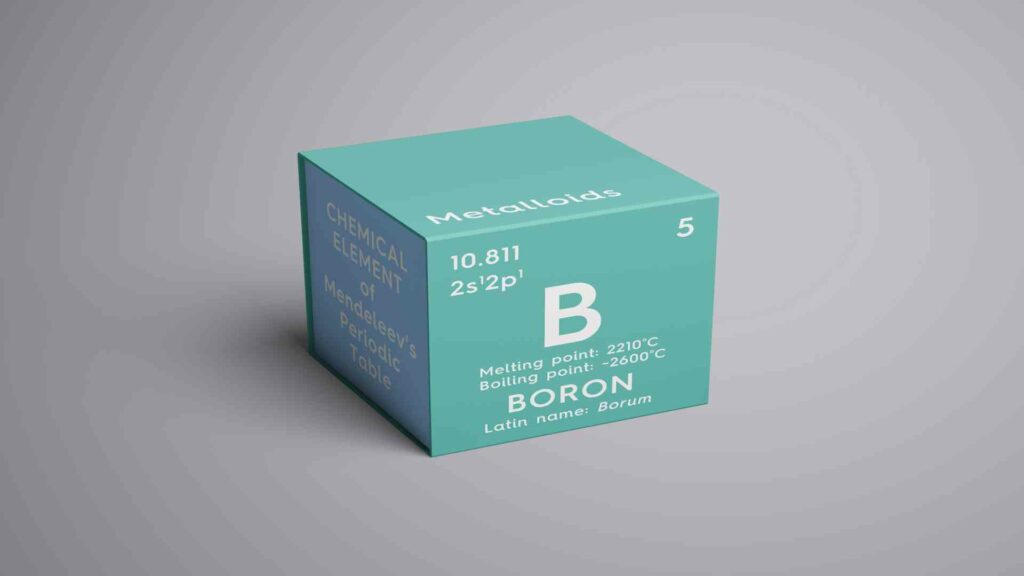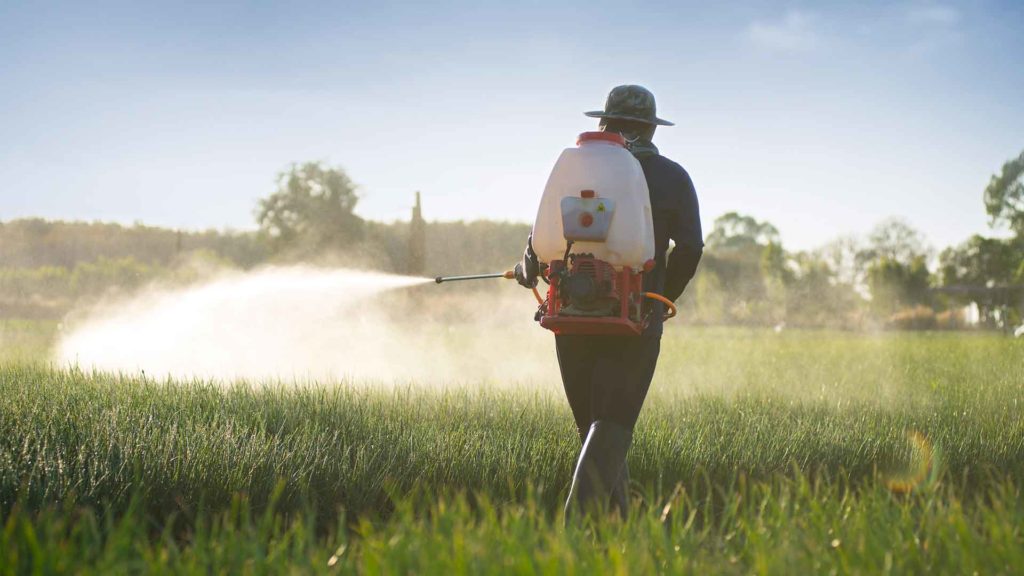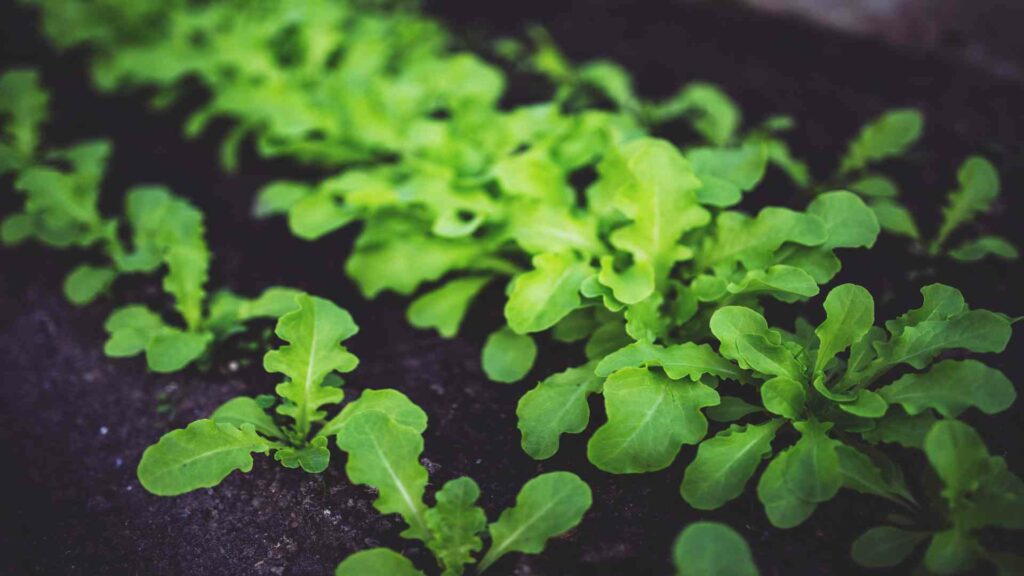Boron: The Micronutrient your Alfalfa Plant Needs
An Alfalfa plant depends on the presence of boron to thrive, a micronutrient required in minimal amounts for optimal growth. Without adequate levels of this important trace element, plants may exhibit signs of deficiency and fail to reach their full potential.

Alfalfa plant
Boron Increases Alfalfa Yields
Boron fertilization is becoming increasingly crucial for alfalfa in high-yield situations due to its pivotal role in nitrogen fixation and protein formation. Poor boron levels can cause noticeable symptoms such as shortened internode spacing and bunching of the top leaves and may even lead to the death of the growing point in severe cases.
When applying boron, it is also necessary to consider other micronutrients based on soil fertility and growing conditions. Zinc, manganese, and iron can be beneficial when applied in conjunction with boron, with sufficient leaf tissue levels usually ranging between 30 ppm and to 80ppm.
As tissue test levels lower than 20 ppm can lead to reduced yields and protein levels, proper boron management is key for successful alfalfa cultivation.
Common Conditions that Lead to Boron Deficiencies
Boron is a nutrient essential to the health and growth of alfalfa plants, yet its availability in soil requires careful consideration. While boron is highly water soluble and mobile in soil, its accessibility depends greatly upon conditions such as soil type, organic matter content, pH, and mitigating factors like rainfall or drought.
These can all impede a plant’s ability to access boron through mass flow when the roots uptake soil water. Poorly-drained sandy soils, which may lack sufficient amounts of organic matter, are especially prone to boron deficiency due to high leaching during heavy rains. In contrast, dry conditions with limited water absorption by the roots can also reduce boron availability for plants.
Of particular note are alkaline calcareous soils, which often include low boron concentrations at higher pH levels. By monitoring and adjusting the environment in which crops grow accordingly, farmers can ensure sufficient availability of this important nutrient for healthy harvests.
Cultivation Practices for Optimal Growth
The best way to achieve optimal growth for an alfalfa plant is by implementing cultivation practices. This means keeping plants healthy and free of pests and diseases. There are many different ways to cultivate, but some of the most important practices are discussed here.
1. Soil and Temperature Requirements
An Alfalfa plant is a resilient and versatile plant that can be grown in any kind of soil, though it works best in fertile, loamy soils with good drainage. As long as the pH level isn’t too acidic, cultivating alfalfa plants is possible. The plant thrives in warm climates and can tolerate temperatures up to 45 degrees Celsius and rainfall between 30-50 cm. Though its adaptability gives it the ability to withstand drought, it generally produces more productive yields when optimal conditions are met.
2. Plantation of Seed
The cultivation of an alfalfa plant is a process that requires careful planning and precision. Prior to sowing, these seeds need to be soaked in water overnight to soften their hard coating and ensure optimal germination. The best time to sow alfalfa seeds is during October or November when the weather has cooled, and humidity is low. After germination, it takes an additional six months for the plant to reach its maximum vegetative growth potential.
3. Irrigation
To ensure robust crop yield, an Alfalfa plant requires vigilant irrigation planning and execution. Make sure to water the crop every 15–20 days and again when it reaches the flowering stage for optimal growth. Additionally, hoeing your field regularly and spraying suitable herbicides will keep weeds at bay, while stirring the soil helps with adequate aeration and nutrient uptake.
Nutritional Power of Alfalfa Plant
Alfalfa is a type of forage plant that is high in protein and other essential nutrients. It is a good source of vitamins and minerals, including boron.
Regarding micronutrients, alfalfa is a good source of vitamins, including vitamins A, C, and E. It is also a good source of several minerals, including calcium, potassium, and iron.
In terms of the nutritional value of boron, it is involved in the synthesis of plant hormones and helps to strengthen the cell walls of the plant. In addition, boron is important for the proper functioning of the plant’s vascular system and is necessary for synthesizing certain enzymes.
It is important to note that the nutritional content of an alfalfa plant can vary depending on a variety of factors, including the soil type, climate, and farming practices. In general, however, alfalfa is a nutritious plant that is rich in a variety of essential nutrients.
Health Benefits of the Alfalfa Plant
An Alfalfa plant has numerous health benefits, making it an ideal choice for those looking to improve their overall health.
1. Controls Cholesterol
Alfalfa plants are a potent ally in the fight against heart disease. As one of nature’s most nutrient-rich plants, alfalfa provides numerous health benefits, including its ability to help keep cholesterol at healthy levels. This protective capability contributes to decreased risk of heart problems by preventing your body’s cholesterol levels from becoming too high.
2. Helps with Digestion
The alfalfa plant is often overlooked as a good source of relief from standard digestive systems issues such as stomach ulcers, bloating, and gastritis. Since its sprouts contain a high amount of fiber, they can effectively reduce chronic constipation.
3. Prevents Cancer
Alfalfa is a special plant in terms of its cancer-prevention capabilities. It contains a unique amino acid known as a convenience, which binds to carcinogens found in the colon.
4. Helps with Kidney Disorder
Alfalfa is an extremely beneficial plant for those suffering from kidney disorders. Its diuretic properties help to reduce water retention, which can build up in the body and cause uncomfortable symptoms such as bloating and fatigue. Moreover, these properties also help to prevent urinary tract infections, which are common complications of kidney disorders.
Potential Side Effects of Alfalfa
- People with thin blood or a bleeding disorder should also avoid taking alfalfa as it contains high levels of vitamin K which can cause an imbalance in the body and worsen their condition.
- People with autoimmune disorders such as lupus should not take alfalfa due to its content of the amino acid I-canavanine, which is known to interfere with the immune system.
- Taking alfalfa when pregnant or having any of these conditions could lead to serious health complications and should be avoided at all costs.
If you are unsure whether Alfalfa suits your current situation or not, please consult your doctor before taking it.





